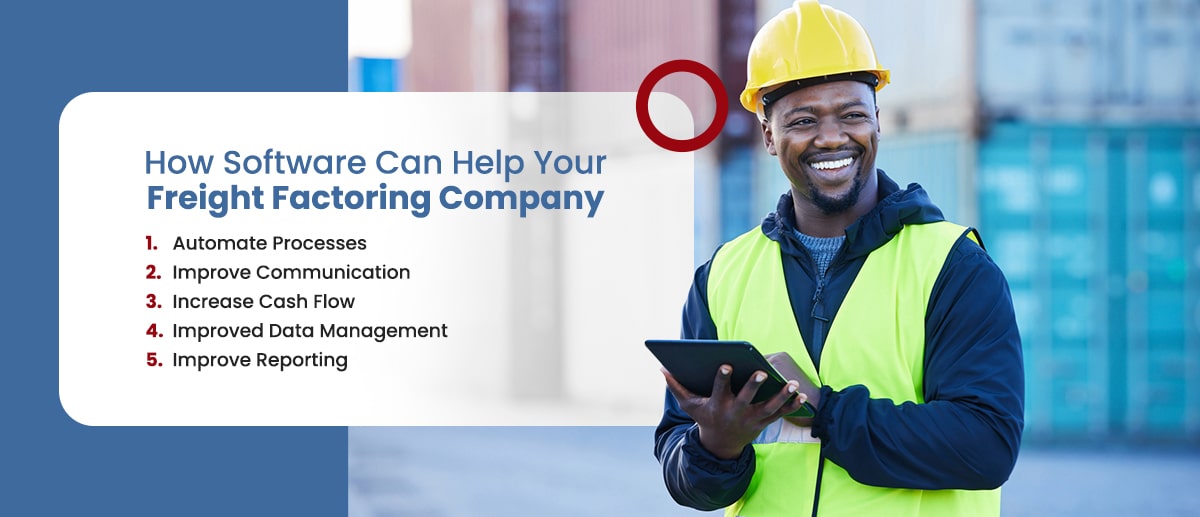
Freight factoring or load factoring in trucking allows carriers to access immediate funding rather than waiting several days or months before getting paid for services. The factoring company purchases the invoice at a discounted amount and assumes responsibility for collecting payment from the customer. This allows truckers to focus on other vital tasks.
Freight companies often encounter cash flow and administrative challenges, so employing digital solutions in managing your business is essential.
A factoring company for trucking offers an efficient way for owner-operators and carriers to receive quick payments on the loads they run instead of waiting several days or months before getting paid.
Before freight factoring became popular, trucking companies and owner-operators often waited weeks for funds to reach their accounts or resorted to bank loans. Bank loans were relatively quick to get. However, the interest charges posed a significant challenge.
Freight capital factoring is a practical solution, improving the cash flow situation for most trucking companies. In exchange, freight factoring companies charge a relatively small percentage of the amount owed.
Here are four simple steps illustrating how freight factoring typically works:
There are several differences between freight factoring and invoice financing. The two primary differences are:
With freight factoring, customers pay the invoice to the third-party freight factoring company instead of the trucking company. The freight factor takes responsibility for pursuing customer payment. The customer ceases to interact with the trucking company once the factoring company purchases the outstanding invoice.
In invoice factoring, the customer pays the total amount on the invoice to the trucking company. There is no third-party freight factor company.
In freight factoring, trucking companies sell their unpaid account receivables to the freight factoring company and receive an upfront payment. Typically, the factoring company pays the arrears when the customer completes payment. The parties may agree on who takes the risk if the customer fails to deliver.
With invoicing financing, trucking companies receive the upfront payment as a loan or line of credit backed by the outstanding invoices. When the customer pays the amount on the invoice, the trucking company repays the lender.
Here is the difference between recourse and non-recourse freight factoring:
Trucking companies use the services of factoring companies for many reasons, including the following:
Here are two significant challenges in the transportation factoring industry:
Factoring companies can face cash flow challenges if customers consistently fail to meet payment obligations. Factor companies must conduct comprehensive background checks and assess customers’ creditworthiness before accepting invoices. Additionally, they should track all transactions to know whether they have sufficient financial backing to receive new invoices.
Freight factors deal with multiple administrative tasks, including credit checks, record-keeping and carrier packet preparation. These activities can be time-consuming, labor-intensive and financially draining. A practical solution is automating mundane processes, which can streamline operations and reduce human errors.

Here are five ways digital solutions can revolutionize your freight factoring business:
Digital freight factoring solutions automate mundane tasks such as invoice collection, data entry, credit checking and payment processing. Eliminating manual processes can streamline operations, reduce human errors and increase delivery times. Ultimately, the company saves time and money.
Freight factoring software can improve communication by providing a centralized communication channel between the company and all stakeholders. Clients can submit invoices, receive quick updates and make inquiries on the same platform. Efficient communication can also reduce confusion and duplication of tasks.
Streamlining factoring processes saves money, enables faster funding decisions and increases payments. For example, the software can quickly, automatically and accurately verify invoice details, including payment amounts and due dates, enabling faster client payment and increasing overall output.
Factoring companies usually face challenges with data storage, security and access, which is why the top organizations leverage digital solutions. Factoring software centralizes data on a single platform and stores it on virtual servers. Storing data in the cloud has many benefits.
First, you can restrict access to the information on the platform. Second, stakeholders can access data from any location worldwide. Third, teams can collaborate on the platform regardless of their location. Finally, the information is secure.
Receiving real-time updates on invoice statutes, account receivables and payment history helps factoring companies make informed decisions. They can identify patterns and trends, including which industry or clients generate the most revenue. Improved data management can also reduce risks for factor companies.
Reporting is one of the most critical and intense administrative activities in freight factoring. However, it is simple with factoring software. Factoring software allows companies to generate automated and accurate reports, which can help them identify issues with late or unpaid invoices. This facilitates quick response to challenges and helps companies better understand the areas that need improvement.
The FactorFox Software is specially designed for factoring companies seeking to streamline operations and drive growth. The platform allows you to efficiently perform multiple functions, including invoice scanning, data collection and reporting. FactorFox is customizable and integrates with many apps and services, including credit agencies, accounting software and productivity applications. Sign up today for your free 30-day trial!